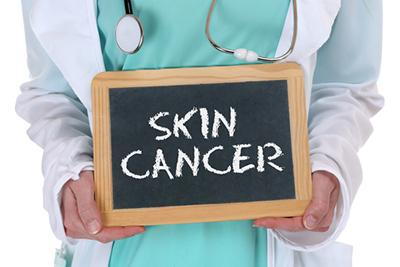
Basal Cell Carcinoma vs. Squamous Cell Carcinoma
The type of cancer that most commonly affects adults in the United States is skin cancer. Of the different types of skin cancer, the two most common are basal cell carcinoma and squamous cell carcinoma. Dr. Clifford Lober, the board-certified dermatologist and skin cancer specialist at our offices in Kissimmee & Ocoee, FL, treats both basal cell carcinoma and squamous cell carcinoma.
Signs of Skin Cancer
It is important to examine your skin regularly to check for sudden changes, which could be early warning signs of skin cancer. It is also beneficial to see a dermatologist periodically for a professional skin cancer screening. The experienced doctor at our practices in Kissimmee & Ocoee, FL, screens for basal cell carcinoma, squamous cell carcinoma, melanoma, and other types of skin cancer.
Signs of possible skin cancer include:
- Crusty or scaly spots that do not go away
- Sores that do not heal or return after previously healing
- Itching or bleeding of existing skin lesions or moles
- Changes in the color, shape, or size of moles
- Development of a new mole or lesion
Basal Cell Carcinoma
The most common skin cancer is basal cell carcinoma. It is caused by the sun’s ultraviolet (UV) rays and typically develops on areas of skin that have been exposed to the skin, such as the face, neck, arms, and legs. Basal cell carcinoma often appears as waxy or pearly lesions, sometimes without a clearly defined border. This type of cancer can also appear as brown scaly patches on the skin. Fortunately, basal cell carcinoma rarely spreads beyond the skin to metastasize elsewhere.
Squamous Cell Carcinoma
Squamous cell carcinoma is the second most common skin cancer. Like basal cell carcinoma, it is also caused by extensive sun exposure. Unlike basal cell carcinoma, this type of skin cancer is more likely to spread to the lymph nodes or other organs where it can metastasize. Squamous cell carcinoma lesions can be raised or flat, slightly scaly, and often have indistinct borders.
Skin Cancer Treatments
Several options are available for treating the different types of skin cancer. Treatment methods include:
- Surgical Excision — Surgical removal of malignant tumors.
- Radiation Therapy — Radiation destroys cancer cells and shrinks tumors.
- Prescription Medicated Creams — Medications that are applied topically and stimulate the immune system to target and eliminate cancerous cells.
- Curettage and Desiccation — A technique that involves scraping out the tumor and then applying an electric current to destroy any remaining cancer cells.
- Mohs Micrographic Surgery — A precise surgical method for removing cancerous skin cells without damaging healthy skin tissue.
Unusual changes in the skin, such as the growth of a new lesion or sores that will not heal, could be signs of skin cancer. Skin cancer is easier to treat when detected early so it is best to see a doctor promptly. Schedule a skin cancer screening with Dr. Lober to check for squamous cell carcinoma or basal cell carcinoma by calling our offices in Kissimmee & Ocoee FL. You can reach him in the Kissimmee office by calling (407) 846-7166, or in the Ocoee office by calling (407) 656-9700, so call today.